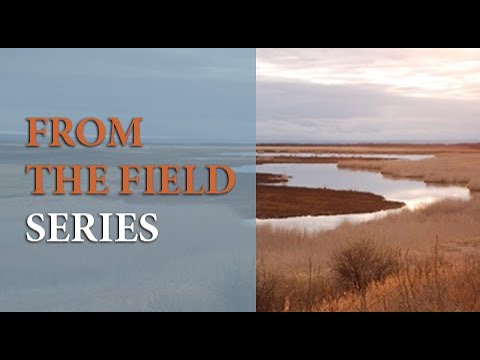– The establishment of Muraviovka Park for Sustainable Land Use in Russia’s Amur River Basin and its objectives.
– The role of Muraviovka Park in crane and wetland conservation in the context of global biodiversity.
– Collaborative efforts and partnerships that bolster the park’s conservation initiatives.
– The challenges faced by Muraviovka Park in wildlife and habitat preservation.
– Future directions for Muraviovka Park and implications for global wildlife conservation efforts.
Muraviovka Park for Sustainable Land Use represents a tangible commitment to preserving cranes and wetlands in the Amur River Basin. Established in the early 1990s, this park serves as a sanctuary for numerous crane species, including the critically endangered Siberian crane, but also plays a vital role in conserving the region’s unique wetland ecosystems. Through dedicated efforts over three decades, Muraviovka Park has become an influential model for conservation practices worldwide.
The park’s primary mission revolves around protecting cranes and their wetland habitats. This objective aligns with broader global biodiversity conservation goals, recognizing the significance of cranes as indicator species for the health of wetland ecosystems. The survival and thriving of these majestic birds are closely linked to the maintenance of robust wetland environments, essential for countless other species and local communities. Muraviovka Park’s focused conservation programs target habitat restoration, anti-poaching measures, and environmental education to foster a sustainable coexistence between humans and wildlife.
Collaboration has been instrumental in the success of Muraviovka Park’s conservation efforts. Partnerships with local and international organizations, governments, and academia have fortified its initiatives, enabling resource sharing, research, and widespread awareness campaigns. These cooperative endeavors have facilitated significant strides in crane conservation and enhanced wetland preservation methodologies. Such partnerships underscore the importance of a unified approach to address the complex challenges faced by wildlife and their natural habitats.
Despite its successes, Muraviovka Park confronts various obstacles in safeguarding cranes and their environments. Habitat destruction, driven by agricultural expansion and industrial development, constantly threatens the park’s conservation achievements. Additionally, climate change introduces new uncertainties, affecting migratory patterns and the integrity of wetland ecosystems. Tackling these challenges requires adaptive management strategies, continuous research, and enhanced community engagement to mitigate negative impacts on these critical habitats.
Muraviovka Park is poised to expand its role in global wildlife conservation. By leveraging its experience and successes, the park aims to influence broader environmental policies and practices. Emphasizing education and community involvement, Muraviovka Park endeavors to build a more informed public that values and participates in conservation efforts. Enhanced technological applications in research and monitoring can offer more profound insights into crane behavior and wetland health, guiding more effective conservation interventions.
The work of Muraviovka Park over the past three decades stands as a testament to the possibility and importance of dedicated wildlife conservation. As the park continues to evolve, its activities contribute to the global effort to preserve our planet’s biodiversity. The ongoing mission of Muraviovka Park in the Amur River Basin underscores the critical need for continued vigilance, innovation, and cooperation in the fight against environmental degradation and species loss. Through commitment and collective action, the goal of harmonious coexistence between humans and nature remains within reach, offering hope for the future of cranes, wetlands, and the broader ecosystem they support.
*****
Source Description
https://savingcranes.org/webinars/ On Thursday, April 20, at 11 a.m. Central Time, International Crane Foundation Research Associate Dr. Sergei Smirenski and former staff member Elena Smirenski will share Three Decades of Muraviovka Park’s Activities to Preserve Cranes and Wetlands in the Amur River Basin. Muraviovka Park is a private nature reserve in Far East Russia founded in 1994 with the assistance of the International Crane Foundation.
It was sponsored by a Member of Friends of Muraviovka Park in honor of Sergei and Elena.


